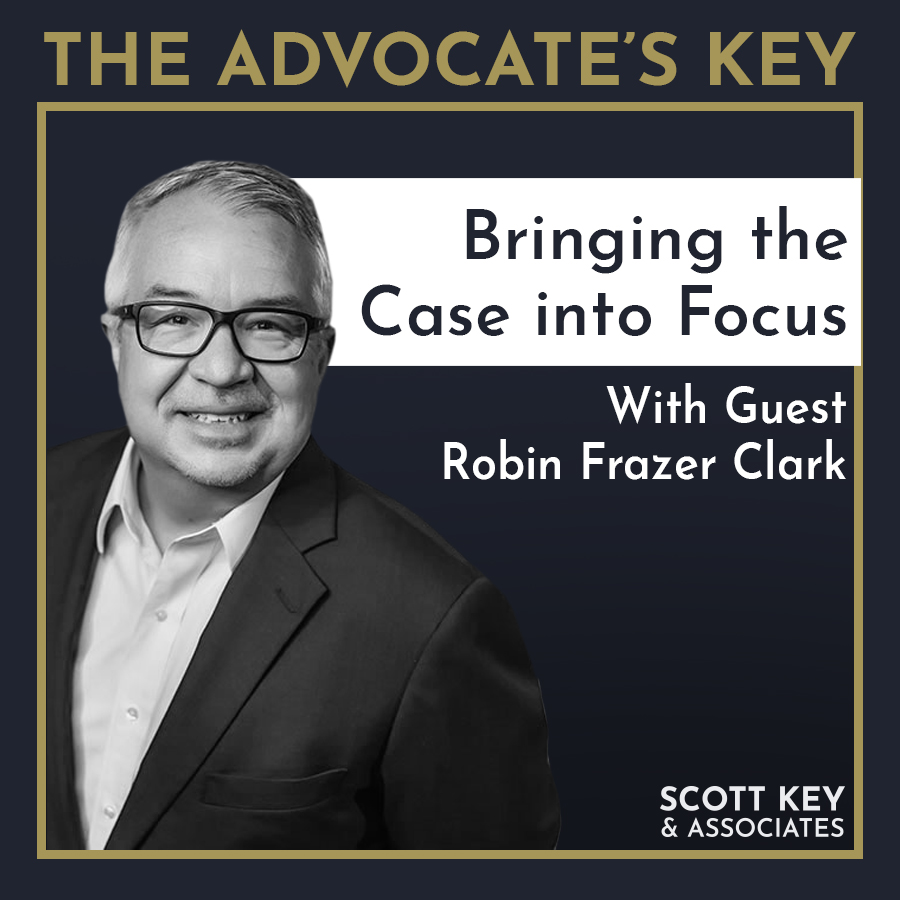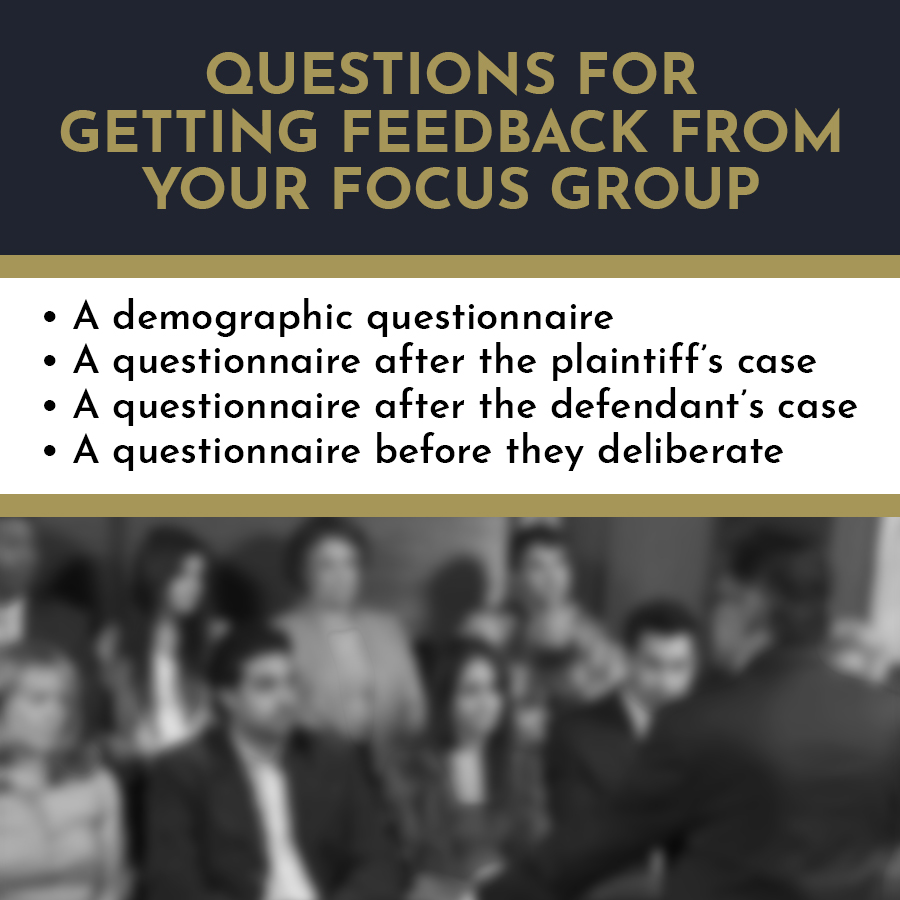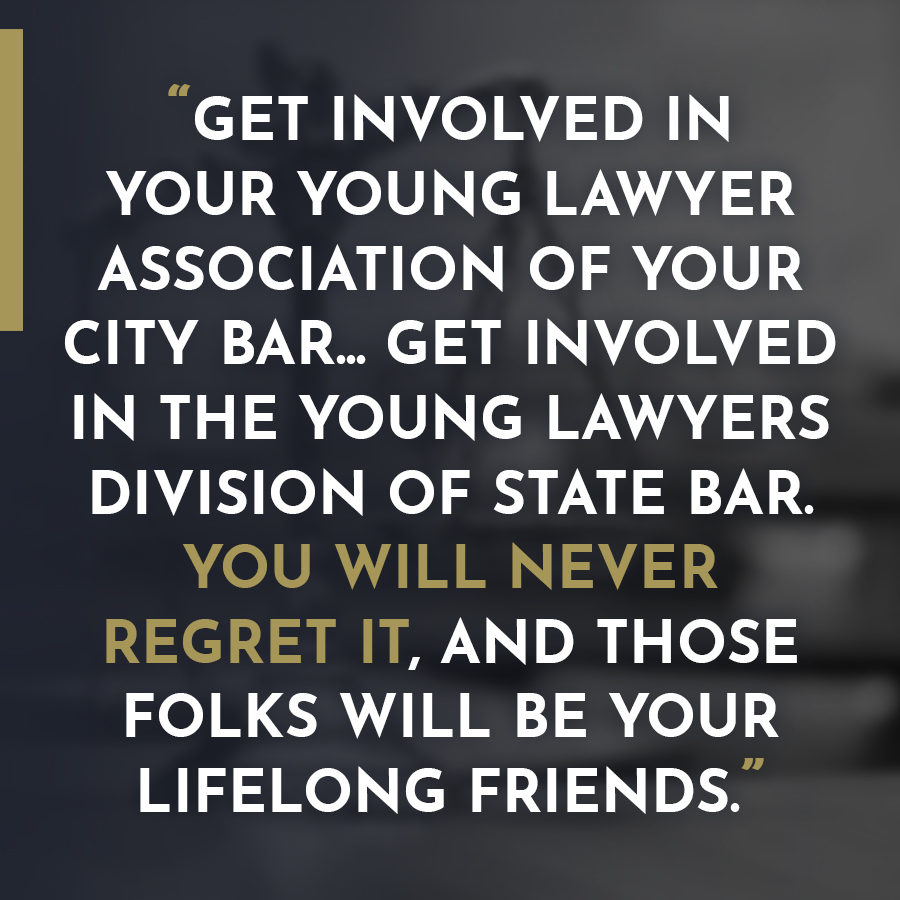Bringing the Case into Focus with Robin Frazer Clark
Trial injury lawyer Robin Frazer Clark shares how she uses focus groups to advocate for the voiceless.
When you conjure up the image of a plaintiff lawyer, you may think of stereotypical TV advertisements or even “ambulance chasers.” But Robin Frazer Clark says at the heart of being an injury lawyer is helping people in the worst of their times.
“It’s about helping others in need. Helping people who, if not for a plaintiff lawyer, would have no hope,” Clark shared. “Those are the kind of cases I take, the ones where I’m making a real difference in someone’s life.”
Clark has over two decades of experience as an Atlanta injury lawyer with her own firm, advocating for the voiceless. In this episode, Scott and Robin discuss the preparation that goes into these plaintiff cases — from focus groups to participation in legal associations.

Leveraging Focus Groups
Before Clark even steps into the courtroom, she has already stood in front of a mock jury, presented her case and received feedback. These focus groups are an invaluable tool to identify potential obstacles during the course of the trial.
“I wouldn’t try a case without doing at least one focus group,” said Clark. “You learn something about every aspect of your case: what you need your experts to say, what kind of jurors are going to be bad for you.”
Oftentimes, Clark conducts the focus groups by bringing in a consultant to prepare the jurors and to act as the defense attorney in the mock trial. It’s imperative to ensure that the jury believes both sides are actually adversaries.
“You want them to believe it’s a real case and there is a real defense attorney in front of them and a real plaintiff’s attorney,” said Clark. “If they think it’s only the plaintiff putting this on, it skews things.”
One tactic to ensure that your focus group is a worthwhile exercise is to ensure that the defense’s side is at its strongest. By assuming that everything goes right for your opponent, you’re able to strengthen your own case against them.
“We make it really really hard for a plaintiff to win in a focus group, so that when we do win with the focus group, it gives me confidence that 12 normal people from that county saw the case the way I see it,” said Clark.

The focus groups should be about getting as much feedback on your case as possible. That’s why Clark says she gives numerous questionnaires to her mock jurors:
- A demographic questionnaire
- A questionnaire after the plaintiff’s case
- A questionnaire after the defendant’s case
- A questionnaire before they deliberate
The final step is to film the jurors’ deliberation surrounding your case and see what holes they may find in your case. Clark believes by watching what kind of questions jurors’ ask in deliberation, you can learn a lot about what parts of your cases to hone in on and review.
Almost every time Clark conducts a focus group, she’s surprised by something that the jurors ask or need clarification on. “It really tells you which path to take at trial,” said Clark. “That’s what you want from a focus group. That information that you haven’t seen because you’re in the thick of it. They’re seeing the forest and you’re seeing the trees. And sometimes you want that viewpoint of ‘Here’s what it looks like to me.’”

Getting Involved in the Legal Community
One piece of advice Clark would give every young lawyer is to become involved in the community. As the 50th President of the Atlanta Bar Association, Clark has found professional and social organizations have helped her find the people to support her.
Especially if you are looking to begin your own practice, Clark believes involvement in the state bar association and local law organizations will help you find your first clients.
“You shake as many hands as you can and you’re forthright and say ‘Look, I’m starting out. I would appreciate any case you don’t want to take, you send it to me. Here’s my card, call me,’” said Clark.
That’s how Clark began when she first struck out on her own: she tapped into her social circles, shook hands with people at her church and started to build her own network of clients.
You can’t be too modest when you’re starting out. Rather, you need to look at each of your connections as a potential starting point.
“Look at your life and say, ‘Where are my friends? Where are the people I’m influenced by? Where are they?’” said Clark. “You have to constantly be telling people what you do, what kind of case you take, what you’re willing to do and you’ll be amazed.”
To learn more about this show and to follow along with our journey, please rate, review and follow this podcast wherever you listen to your audio content including Apple Podcasts, Google Podcast, and Spotify.
